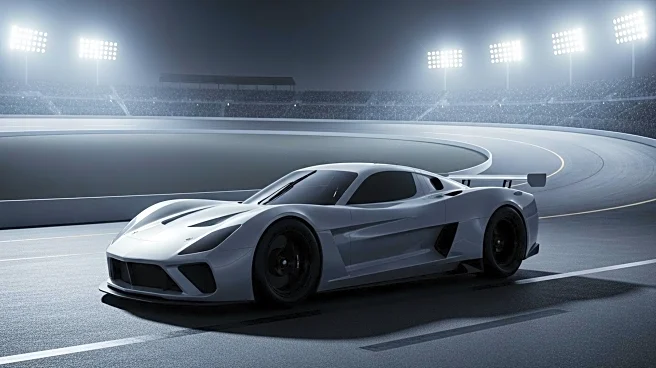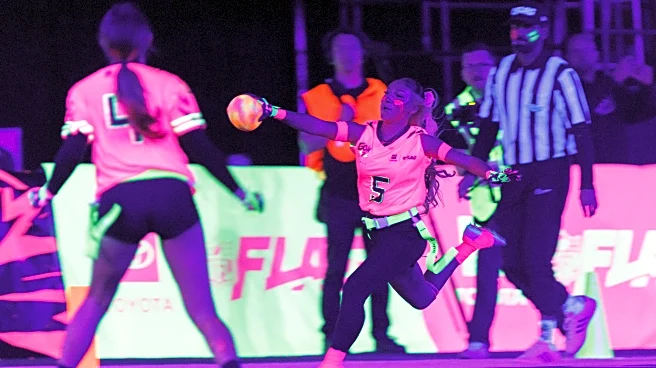What's Happening?
NASCAR is contemplating a shift back to the traditional oval format for the Charlotte Motor Speedway race, currently held as a road course event known as the ROVAL. Introduced in 2018, the ROVAL was initially popular, offering thrilling races and memorable moments. However, the introduction of the Next Gen car has diminished the excitement of road course racing, leading to a decline in viewer interest. Recent TV ratings for the ROVAL have dropped significantly, with only 1.54 million viewers tuning in for the latest race, compared to 3.22 million for its inaugural event. This decline has sparked discussions about reverting to the oval format, which has seen a resurgence in popularity at other tracks.
Why It's Important?
The potential shift back to the oval format at Charlotte Motor Speedway could have significant implications for NASCAR's strategy and fan engagement. The decline in viewership for the ROVAL suggests that fans may prefer the traditional oval races, which have historically drawn larger audiences and provided more consistent racing action. A return to the oval could revitalize interest in the Charlotte race, potentially boosting attendance and TV ratings. This decision could also influence NASCAR's broader scheduling strategy, as it seeks to balance road courses and ovals to maximize fan engagement and commercial success.
What's Next?
If NASCAR decides to revert to the oval format, it could lead to changes in the playoff schedule and impact the strategic planning of teams and drivers. The decision would likely involve consultations with stakeholders, including teams, sponsors, and broadcasters, to ensure alignment with commercial and competitive interests. Additionally, NASCAR may explore other opportunities to incorporate road courses into the schedule, possibly by enhancing existing events or introducing new venues. The outcome of this decision could set a precedent for how NASCAR adapts its schedule to meet evolving fan preferences and market dynamics.
Beyond the Headlines
The debate over the ROVAL versus oval format at Charlotte highlights broader challenges in motorsport, such as maintaining tradition while adapting to new technologies and fan expectations. The decision could also reflect NASCAR's willingness to pivot and innovate in response to market feedback, demonstrating a commitment to delivering compelling racing experiences. Furthermore, the outcome may influence how other motorsport series approach their event formats and scheduling strategies, potentially leading to a reevaluation of how best to engage audiences in a competitive entertainment landscape.









